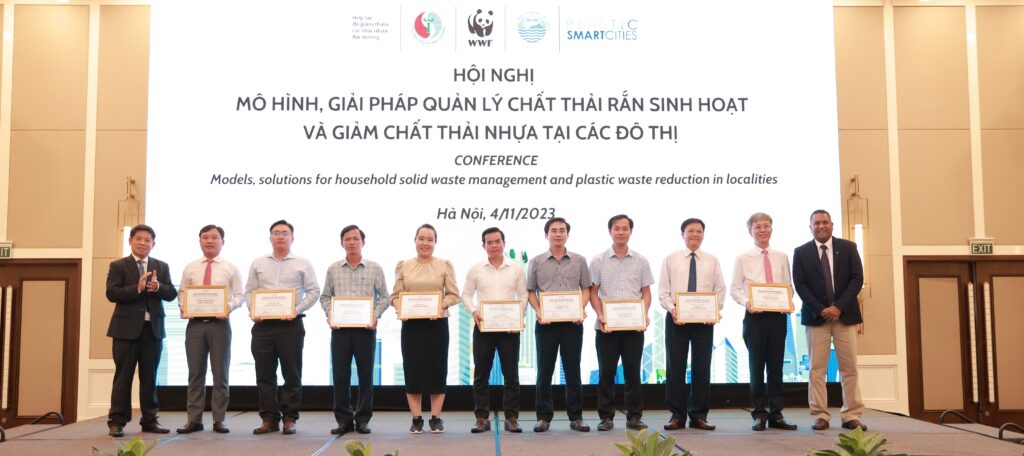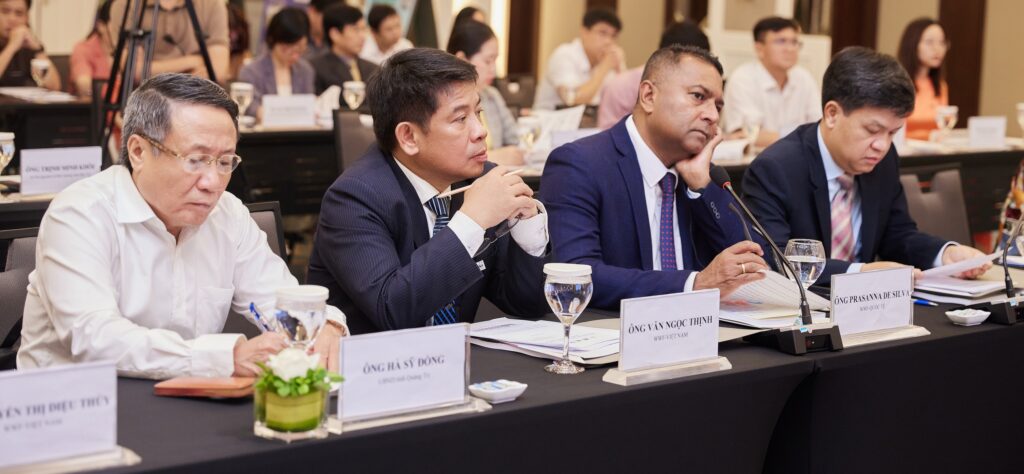A milestone meeting was held to encourage cities across Viet Nam to scale the Plastic Smart Cities Initiative in reducing plastic pollution and preventing leakage into rivers, seas and other places of nature. Titled “Models and Solutions to Manage Domestic Solid Waste and Reduce Urban Plastic Waste Conference”, the event was convened by WWF-Viet Nam together with the Administration of Seas and Islands, as part of the Ministry of Natural Resources and Environment (MoNRE).
“This is an opportunity for leaders at all levels in provinces and cities nationwide to share and discuss experiences in managing plastic waste and minimizing plastic pollution locally,” said Ta Dinh Thi, Vice Chairman of the National Assembly’s Committee on Science, Technology, and Environment, who issued a call to action and encouraged all 63 provinces and cities across the country to consult and test pilot solutions with the Plastic Smart Cities team.
Cities: Largest Contributor to Plastic Waste Production in Viet Nam
Around 60% of plastic waste comes from cities, according to a latest study conducted by WWF-Viet Nam in collaboration with MoNRE. In 2021, the volume of plastic waste produced in Viet Nam is estimated to be at 8,201 tonnes/day or the equivalent of around 2.93 million tonnes/year.
Across households and businesses, most plastic waste generated is not properly handled. Used plastic is commonly thrown together with other types of waste, such as compostable kitchen waste, which makes the sorting and recycling process difficult and costly.
As of January 2022, a new Environmental Protection Law now appoints cities as the primary waste managers, in charge of managing and recycling it.
Plastic Smart Cities as a Response to Tackle the Plastic Waste Problem
In response to the country’s burgeoning plastic pollution, many regions in Viet Nam – with support from many domestic and international organizations – have implemented pilot solutions to improve their waste management through collection, sorting, and recycling waste whilst actively educating citizens to participate.

“After 5 years since the implementation of Plastic Smart Cities in Viet Nam in 2018, there are now 9 regions in Vietnam that have committed to participate in the programme. Even though there are still many difficulties and challenges, we really appreciate the contribution of these regions, whose efforts have produced very encouraging results in improving the management, collection, and classification of household waste, minimizing plastic waste, towards achieving the goal of no more plastic waste in nature by 2030,” said Prasanna De Silva, Chief of Country Office Division, WWF.
To date, 11 cities in Viet Nam have committed to PSC. Among them are Huế, Côn Đảo and Cô Tô, which were represented by city officials who gave presentations to share their experiences and lessons learnt in piloting solutions to plastic pollution. Officials representing the Phú Yên and Quảng Trị provinces responded with much enthusiasm and shared their intention to participate more actively with the PSC network of cities and provinces.
Viet Nam’s National Action Plan to Tackle Plastic Pollution
Viet Nam has set ambitious goals to reduce plastic pollution leaking into oceans by 75% by 2030 based on its National Action Plan of Waste Management for Marine Protection which was issued on 4 December 2019. This decision was followed by the banning of single-use plastic in all tourist attraction areas, accommodation services, and beaches.

Hopefully, this activity could be an opportunity for the central and regional representatives, international organizations, and business parties to connect and join together in tackling plastic pollution. This meeting is a channel for coordinating and discussing the next step of the implementation to manage plastic waste in the regions.


